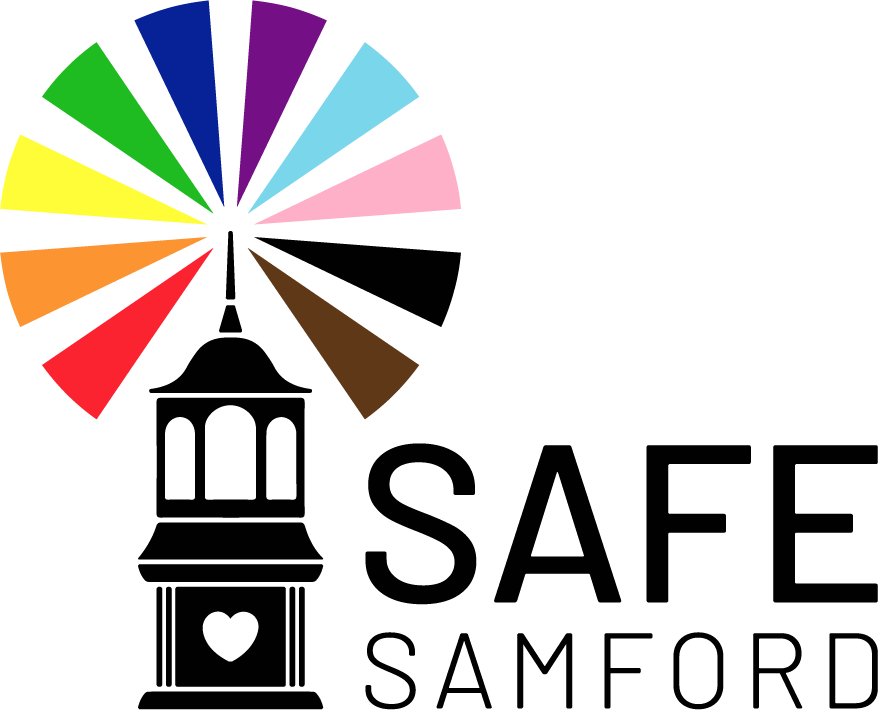"In fact, it was at Samford that I became an ally to the LGBTQ community, not in spite of my faith but because of it..."
Dear President Taylor,
My name is R.G. Wilson-Lyons and I'm a 2003 graduate of Samford. I grew up in a small town United Methodist Church in northeast Alabama where I developed a deep love for God and a relationship with Christ. It was in my freshman dorm room at Samford that my commitment to faith was questioned for the first time by a group of students who were part of an outside campus ministry. You see, my faith development was a journey rather than a one-time moment when I prayed the sinner's prayer. They told me my journey and confirmation as a United Methodist wasn't authentic, that I wasn't saved because I had not experienced that one-time moment of conversion.
Thankfully, that experience was the exception rather than the norm for me at Samford. I started attending Quest, the weekly worship service led by Student Ministries, under the umbrella of University Ministries led by Jim Barnett at the time. I had some of my most profound encounters with God in Reid Chapel and it was in that space that I heard a sermon that, to this day, is the most impactful sermon I've ever heard. That sermon began the journey for me to realize that God was calling me to be a pastor, a vocation I've had for sixteen years now.
My sophomore year, I applied for and was accepted to be a part of the Student Ministries leadership council where I was the co-director of local ministries. It was through Student Ministries that I started working on Habitat for Humanity houses and getting to know kids in Loveman's Village public housing community. Through that experience, my call to ministry was further clarified and I realized God was calling me to be in ministry alongside those living in poverty. The first ten years of my ministry was planting a church in the neighborhood with the lowest median income in Alabama.
As a part of the student ministries council, I was a part of the group that interviewed candidates for the Director of Student Ministries opening at the time. I remember feeling a little scared and troubled when one candidate said that he didn't believe any student who wasn't a Baptist could be in leadership. Quickly, a senior on the committee, the daughter of Baptist missionaries, corrected him that Student Ministries is ecumenical and our mission was to serve all the students on our campus. He wasn't hired. Instead, April Robinson was, and I found her to be an incredible pastor and an important mentor. My senior year, I was the president of Student Ministries.
I share all of this with you because I want you to know that no place has been more important for my faith development and my discernment of my call to ministry than Samford, but that only happened because the spiritual leaders of the campus included this United Methodist rather than trying to force uniformity of belief or tradition.
That is why I am so deeply grieved over the decision to exclude Presbyterian and Episcopalian groups from the ministry fair. During my time at Samford, there was no question that Samford was a Baptist University. But there was also no question that people from other denominations, people like me, were welcome. That welcome extended to people who advocated for full LGBTQ inclusion in the life of the church and in society. In fact, it was at Samford that I became an ally to the LGBTQ community, not in spite of my faith but because of it; a faith that grew in large part because of my involvement with Student Ministries. That version of Samford had a profound impact not only on me but on so many of my friends and classmates.
But sadly, this recent decision to exclude means that kind of impact is no longer possible. I truly believe that God does not call us to be gatekeepers to keep people out, especially in an institution of higher learning that welcomes students from various traditions and backgrounds. Rather, God calls us to continually offer the invitation to join together in Christian love even if we don’t agree on every point of theology or praxis. As someone who loves Samford and who was formed by Samford, it is my very deep hope that you and the rest of the administration will revisit this decision and realize that Samford is a better place when it embraces diversity of thought, belief, and theology.
Sincerely,
Reverend R.G. Wilson-Lyons
